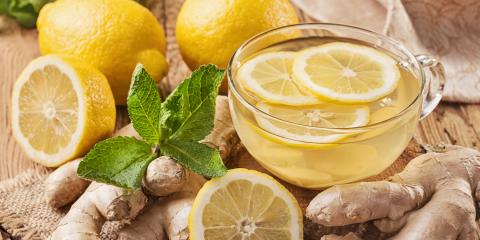Did you know that culinary herbs and spices have long been used in cultural traditions around the world to improve digestion?
In Western herbalism, digestive herbs are often stimulating, pungent, or spicy, and have a “hot” energy. They stimulate digestive fire and destroy or digest ama (toxins).
These digestives aren’t to be used as a compensation for abusing one's digestive system! But they can help strengthen the digestive tract and aid digestion so that more nutrients are available to build and repair the body.
Overused, these same herbs can increase hypertension or cause insomnia. Don’t use them when dehydration or inflammation of mucous membranes is present.
The Right Fit for Your Constitution
Nervous constitutions prone to sleep irregularities and sporadic appetites should try the following digestives: ajwan (celery seed), asafoetida (hing), black pepper, prickly ash (trifolia), and ginger.
People with a heavier, more congested and phlegmatic constitution with slow digestion should add the following to their diet: cayenne, cinnamon, cloves, horseradish, garlic, mustard, onion, and pippali (longpepper).
Herbal bitter tonics with a “cold” energy can also be used—the idea being that the body will respond by heating up internally. Bitter tonics are best with those with a fiery constitution, with tendencies toward inflammation and high blood pressure.
Good examples include aloe vera, barberry, gentian, golden seal, and Peruvian bark. Ayurvedic herbs include kutki and neem.
People with thinner, weaker, and more nervous constitutions should avoid these. Children should not take them in large amounts.
Beat Bloat and Gas
Carminatives are more gentle spices used in the Ayurvedic tradition as digestives. These help reduce gas and bloating, and settle digestion.
The volatile oils in these aromatic spices stimulate the gastrointestinal nerves to encourage digestion and move undigested food particles along before they build up into ama. Carminatives are especially good for weak digestion due to anxiety, nervousness, or depression.
Make them easy to use by blending them into a churna, or spice blend, in a shaker or dispenser that is readily accessible while preparing or seasoning foods.
For those of the drier, more nervous nature, or who tend to be of a colder body temperature, a savory mix can be made with ajwan, hing, garlic, ginger, oregano, thyme, basil, turmeric, bay leaves, and juniper berries.
Add calamus or valerian if more calming is needed for the digestive or nervous system. A bit of sea or rock salt in the mix is acceptable.
A sweeter mix of cloves, cinnamon, ginger, nutmeg, cardamom, and orange peel can be used on cooked cereals, in warmed milk, and with fruits or fruit purees.
For those with hotter, more inflammatory natures, cooling carminatives should be used. Their churna can include herbs and spices like chamomile, catnip, cumin, peppermint or spearmint, fennel, dill, wintergreen, coriander, lime peel, and even chrysanthemum and nutgrass (musta). It is best for this higher blood pressure type to avoid salt.
The best way to include these herbs and spices in your life is in food or teas. A combination is often more beneficial than using one at a time.
Use this information to make an educated choice based upon your constitutional tendencies, rather than just on your symptoms.




